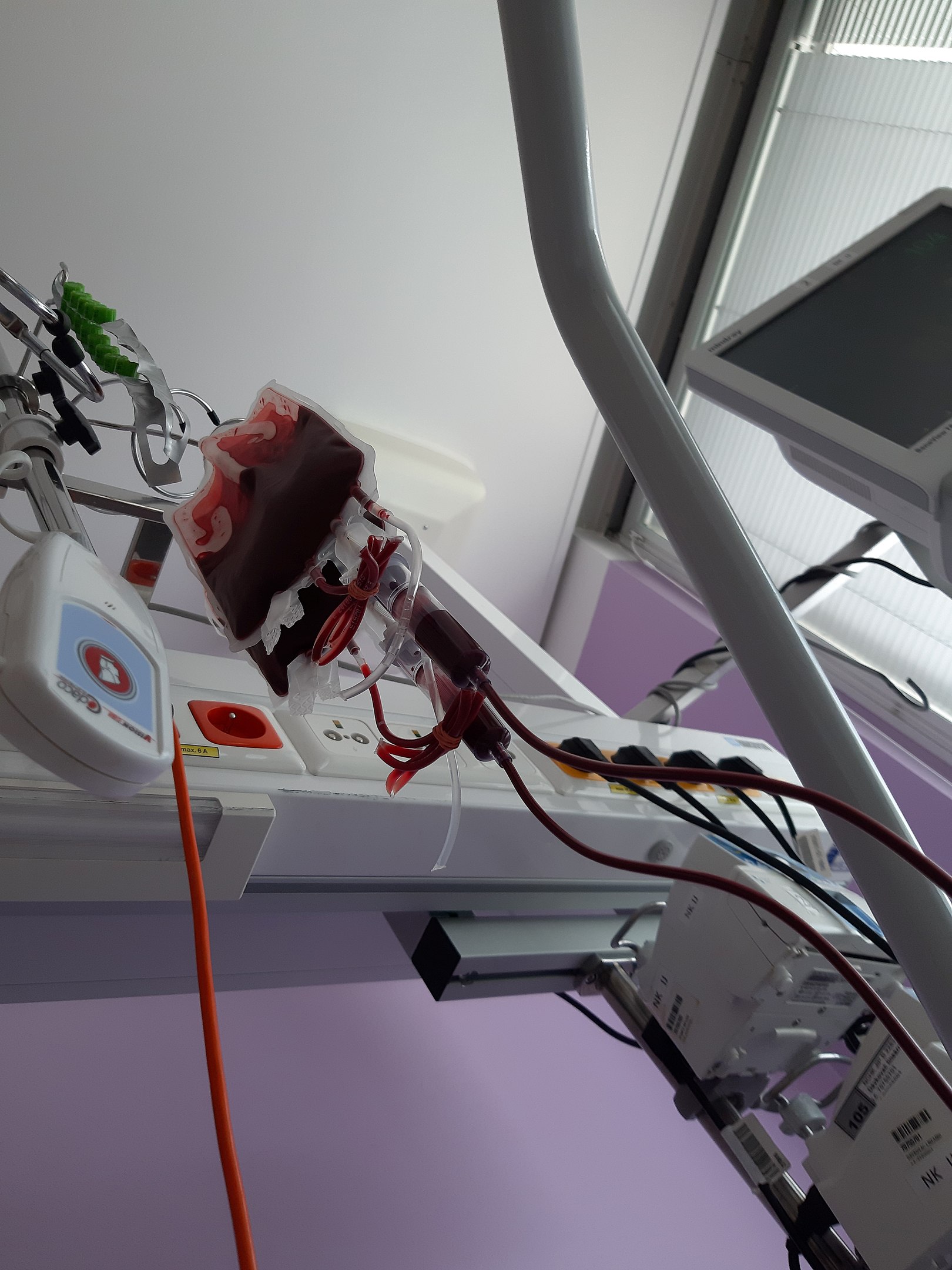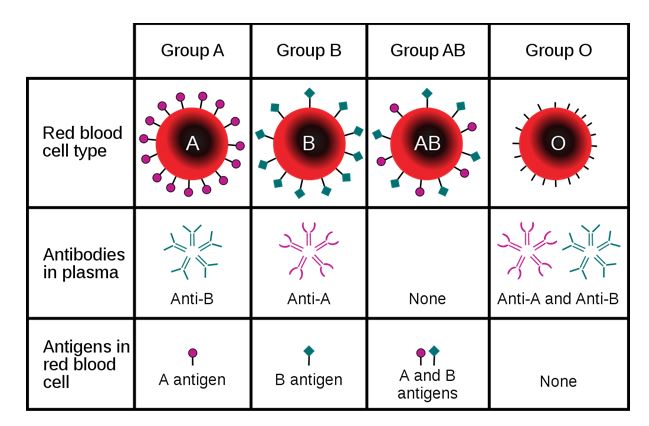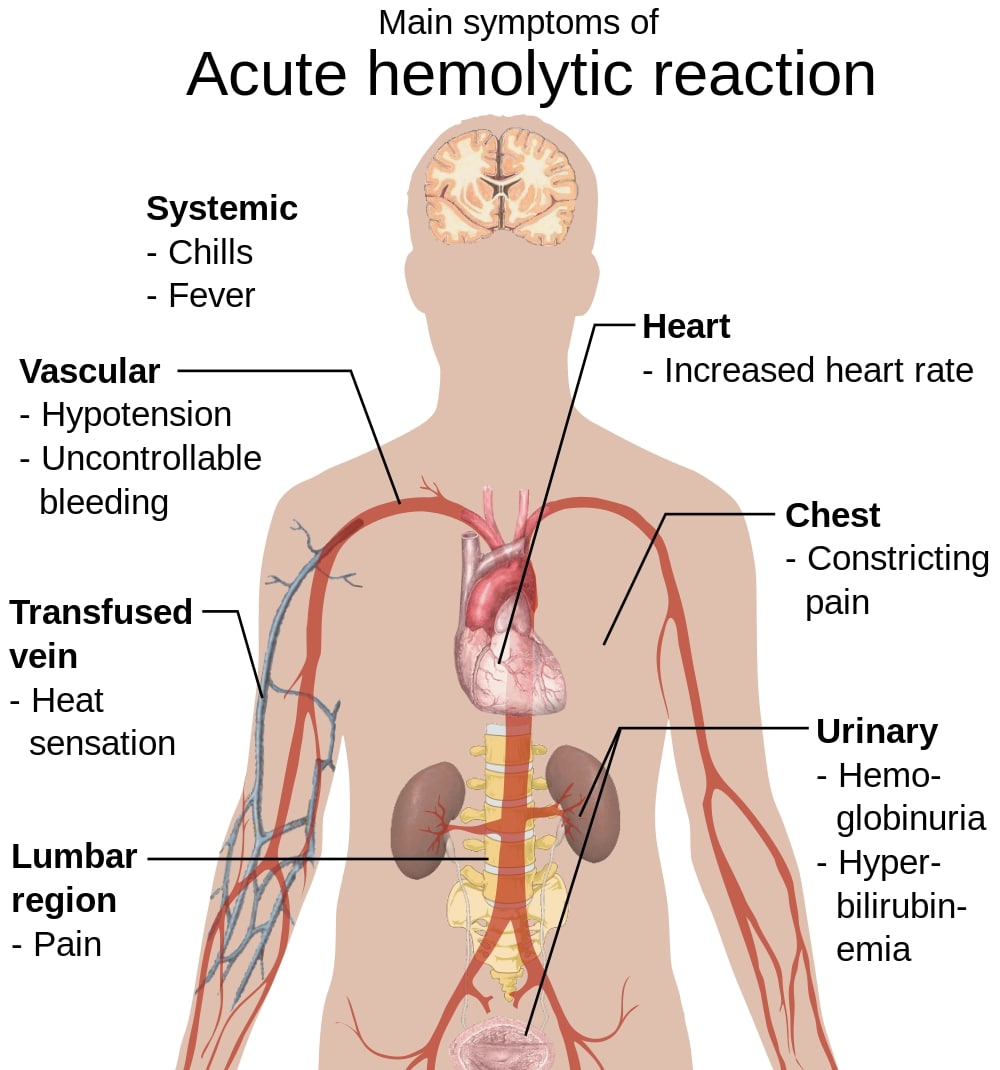Playlist
Show Playlist
Hide Playlist
Blood Transfusion
-
14 Slides Transplantation Immunology.pdf
-
Reference List Immune System.pdf
-
Download Lecture Overview
00:01 As I just mentioned, blood transfusion is the most common type of transplant. 00:05 And here we can see the way in which the blood group antigens are inherited looking at the ABO blood groups. 00:15 So here we have a father who is blood group A and a mother who is blood group B. 00:21 The first child inherits the null allele from the father and from the mother, and therefore is blood group O. 00:31 And they will produce natural antibodies against both blood group A and blood group B, because those are not antigens which are part of their body makeup. 00:42 They will not be immunologically tolerant to those antigens. 00:46 And structures that are very similar to those particular antigens are present on many common microbes. 00:52 So we produce lots of natural antibodies against the A and B antigens if we lack those antigens ourselves. 01:01 And this individual being blood group O will be a universal donor. 01:08 Their second child has inherited the A blood group from the father and the null allele from the mother. 01:17 And will be blood group A, and will produce B blood group specific antibodies. 01:25 The third child is blood group B, having inherited B from the mother and the null allele from the father, and produces blood group A antibodies from birth. 01:38 And then child four is AB blood group. 01:43 And because both the A blood group and the B blood group are now self antigens for this individual, they do not produce antibodies against either blood group A or blood group B antigens, and will be a universal recipient.
About the Lecture
The lecture Blood Transfusion by Peter Delves, PhD is from the course Transplantation Immunology.
Included Quiz Questions
Which of the following statements regarding anti-A and anti-B antibodies is MOST ACCURATE?
- They are naturally occurring antibodies.
- Anti-A antibodies typically occur in patients with Rh+ blood group A
- Anti-A antibodies typically occur in patients with Rh- blood group A
- Anti-B antibodies typically occur in patients with Rh+ blood group AB
- Anti-B antibodies typically occur in patients with Rh- blood group AB
Why do people with type O blood generally have anti-A and anti-B antibodies?
- Genetic predisposition
- Exposure to A and B blood
- Placental transfer
- Maternal-fetal ABO incompatibility
Customer reviews
5,0 of 5 stars
| 5 Stars |
|
5 |
| 4 Stars |
|
0 |
| 3 Stars |
|
0 |
| 2 Stars |
|
0 |
| 1 Star |
|
0 |






